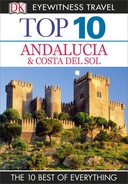Banking and Communications
1. Currency
Now that the euro is the currency of many European countries, life is much easier for visitors to the continent, although the changeover has resulted in some price inflation. Euro banknotes have the following denominations: 5, 10, 20, 50, 100, 200 and 500. Euro coins come in eight denominations: €1, €2, and 1, 2, 5, 10, 20 and 50 cents. Visitors from outside the euro zone should check the exchange rates at the time of travel.
2. Traveller’s Cheques
If you’re going to opt for this safety precaution, get your cheques directly in euros – you won’t have to pay any commission to cash them. Do this at a major bank or large hotel; fewer establishments accept them directly these days.
3. Cashpoints and ATMs
For ready cash, this is the best option. ATMs are everywhere and very reliable. Some Spanish banks charge no transaction fee; you’ll only have your own bank’s fee to pay for using a non-branch machine.
4. Credit Cards
Using your credit card is possible for almost everything in larger towns. Only the smallest places in off-the-beaten-track outposts will find it a problem. However, be aware that your own bank may charge upto 3 per cent currency conversion fee for every card purchase you make, so it’s cheaper to use your cash card option.
5. Wiring Money
This expensive, laborious process should be considered only as a last resort. You can have your bank send money to a bank in Spain, but you must organize things at the Spanish end first. Then expect it to take an indeterminate number of days and for there to be substantial charges at both ends of the process.
6. Post
Most post offices (correos) are open 9am to 2pm and 5pm to 7:30pm; larger offices may not close for siesta. For letters and postcards, you can also get stamps (sellos) at tobacco shops and newspaper stands. In general, Spanish post is reliable.
7. Telephones
Calling Spain from another country requires dialling 00 then the country code, 34. While in Andalucía, you must always dial the regional area code, 95, even if calling locally. To call abroad from Spain, dial 00, then the country code, area code and number of your destination. For local and national information, call 11850; for international enquiries, call 11825.
8. Internet
Many hotels allow you to use your laptop for accessing the Internet. Internet cafés are also common sights in every town and city, and even villages. Wi-Fi is readily available and often free. Overall Internet connections are improving.
9. Newspapers and Magazines
In the larger towns, you’ll find a good selection of international press: USA Today and the International Herald Tribune and, in larger kiosks, major British, German, French and Dutch papers. Costa del Sol English-language publications include Sol, The Entertainers, Lookout, Sur English and Marbella Life.
10. TV and Radio
The more expensive hotels all offer satellite TV, with many programmes in English, German, French and Italian – not to mention all the regular Spanish channels. Radio Gibraltar and US Armed Forces Radio from Rota provide English-language broadcasting, and there are others along the Costa del Sol. Spanish stations feature a mix of Spanish and international pop music. Canal Sur is the official Andalucían broadcasting system.
